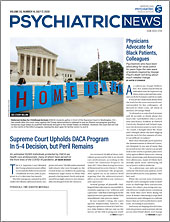A patient you have been caring for over the past seven months presents for medication management. He is a 42-year-old African American man. He explains that he is struggling emotionally, and you have noticed he is increasingly despondent these last couple of weeks. He makes statements similar to “It’s just stuff, doc. Everything is just happening; it’s just too much.” You press him for details, wondering if “everything” is in relation to the COVID-19 pandemic, but he instead responds with, “I mean, there’s just so much right now with the virus and the lockdown and just everything.” You are aware of recent reports in the news about police brutality leading to the deaths of Black Americans and subsequent protests. You wonder whether these events are the cause of his concern and how to proceed. How would he receive your questions? What words do you use?
This vignette identifies a common scenario—the clinician’s awareness of the most recent acts of overt racial injustice against the Black community and concurrent trepidation about introducing dialogue about race and racism into the clinical setting. Clinicians may want to ask but may worry they’ll say the wrong thing or ruin a therapeutic relationship. But, the loss of a life is as terrifying as it is galvanizing, and a psychiatrist who will not discuss these issues cannot have a full understanding of their Black patients and their lives outside of a clinician’s office. While conversations about the interwoven aspects of Black lives are often accompanied by angst, anxiety, anger, pain, grief, exhaustion, and disappointment, they are necessary. Black patients, entrusting their psychiatrist with their innermost conflicts, need clinicians they can trust to help safely manage the quotidian stressors of their lives. Clinicians can skirt uncomfortable discussions about race, but for Black patients, the impact of racism is inescapable.
For the Black community, acts of police brutality are not new. Indeed, modern policing evolved out of slave patrols, where plantation owners hired citizens to preclude themselves from loss. Racism is built into the way people receive housing and employment, where people can live, even how long and healthy their lives can be, according to Z. D. Bailey, et al., in The Lancet posted on April 8, 2017. Studies have repeatedly shown an increased incidence of trauma-related symptoms, depression, and anxiety symptoms after exposure to Black community trauma, as well as adverse medical outcomes due to stratification of race. How can we comprehensively and accurately assess our patients if we do not acknowledge the crux of their conflicts? We contend that the risk of not asking is much greater.
Racism exists today. It is not simply interpersonal, but institutional and systemic. If you are anxious about initiating the conversation, acknowledge that to your patient. It does not lessen your value as a psychiatrist to identify your blind spots. No one is expecting you to be an expert, but you should remain eager to learn from your patients. Be aware of your tone and be sincere; be humbly curious. Remember that it is not your patient’s role to educate you about the historical aspects of racism or current movements like Black Lives Matter. Engage in self-directed learning from the vast resources detailing the current manifestations of racism and discrimination that your patients experience. Lastly, manage your expectations about the outcome: Your goal is to learn and try to understand. Do not expect to be applauded for asking.
Failure to ask necessary questions conveys a dangerous message—one of invalidation and indifference. Psychiatrists are in a unique position as we routinely peer into the lives of others, and we are trained to understand complex symptoms without firsthand experience. Discussions about racism require vulnerability, societal evaluation, and self-introspection that can be rattling. Ask anyway. Medicine is a practice, and practicing this behavior can only make you more adept at engaging further with less discomfort and increased understanding ■
“Structural Racism and Health Inequities in the U.S.A.: Evidence and Interventions” is posted
here.

